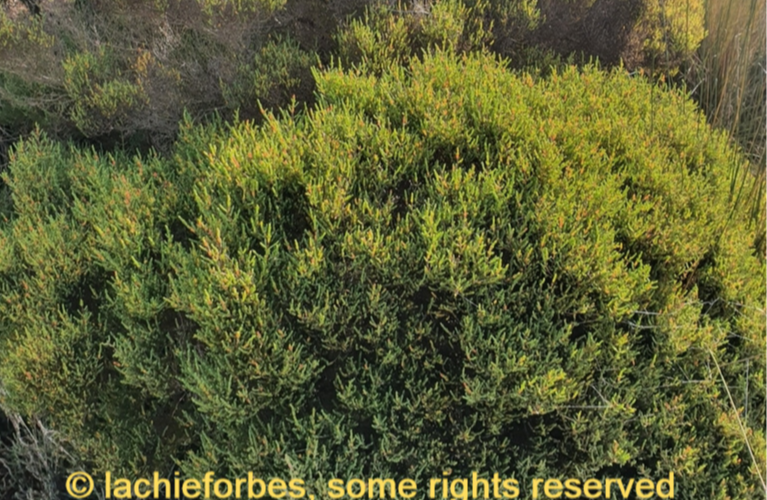By Peri Coleman
Ever put a photo of a samphire up on iNat, to have it languish unidentified for months? It is a problem that is common in plant groups that don't have flashy flowers, or where many species look very similar. So how to increase your chances of a successful identification? The tips below should help. They look at photographing an important samphire, Tecticornia arbuscula, the shrubby samphire. There is a current project looking at the health of this species in Southern Australia. Check it out at:
First up, a photo of the entire bush in its habitat tells potential identifiers a lot - is it a low prostrate plant or an upright shrub? Near the sea? Inland? The shrubby samphire in these photos below is clearly a large shrub. In this photo, you can see the woody structure of these long-lived plants:
And in this photo the shrubs are clearly growing in the intertidal zone - they are at least double the height of the sea rush that grows with them:
Shrubby glasswort is Very healthy here, growing in a Shelly deposit with lots of seagrass. Salicornia quinqueflora understory and occasional Juncus krausii (sea rush)
Next we zoom in to look for flowering spikes. Flowers on samphires are greenish, and are arranged in groups around a spike. Each group is separated from the group above by a bract of fleshy material. All greenish! The flowers of Tecticornia arbuscula actually hide down behind the bracts BUT a closeup photo will often reveal the single female flower on each side of the flower spike. You can see the divided stigmas sticking out in this iNat record below;
As the fruits mature, the flesh of the bract yellows and shrink back a bit around the fruit, which is buried close to the stem. The woody female style which was topped with those delicate stigmas dries and hardens, and remains sticking out of the fruiting body, like little Pinnochio noses.
A set of pictures that includes these details is simple to identify, and will result in your contribution bring rapidly identified.
Further reading
By Peri Coleman
Peri is the principal Consultant at Delta Environmental Consulting and a keen iNaturalist her username is peri3 check out her work.
Twitter @peri_coleman











Comments